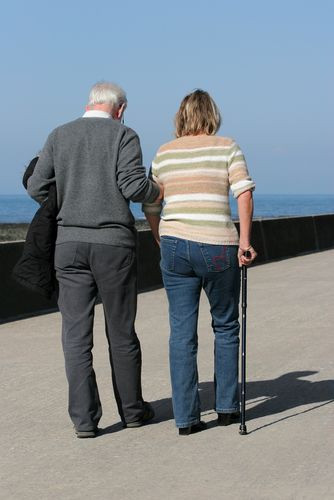Wii Balance Board Improves Brain Connections In Multiple Sclerosis Patients, Leads To Better Balance

Nintendo may have provided your family with endless hours of entertainment, and now it seems it may also have some therapeutic value. A new study shows the Nintendo Wii Balance Board system helps to improve brain connections in people with multiple sclerosis (MS), thus helping them to improve their overall balance and reduce their risk of accidental falls. The study, published in Radiology, used magnetic resonance imaging (MRI) scans on the brains of 27 patients to arrive at this conclusion.
MS is an immune-mediated disease where myelin, the protective coating around the nerve fibers of the central nervous system, is attacked by the body’s immune system. Among the wide range of physical and mental symptoms of the condition, balance and coordination difficulties are the most common. Physical rehabilitation is an important aspect of health care for MS patients. And the latest to offer this is the Wii Balance Board system, which looks very much like a bathroom scale. Users stand on the board and follow the movements they see on the TV screen during games like slalom skiing.
How exactly the Wii balance board helps in improving balance is still to be determined, but the bottom line is it has proved to be effective.
The study tracked 27 MS patients who underwent a 12-week intervention using Wii balance board-based visual feedback training. During this course, the changes in their brains were studied using an MRI technique called diffusion tensor imaging (DTI). This method can reveal abnormalities in the white matter structure of the brain and also the nervous signals passed between the brain and the body. It has been widely used in neurological disorders.
MRI scans of the MS patients showed significant effects in nerve tracts that are important in balance and movement. These changes correlated with improvements in balance as measured by a standard assessment technique called posturography. The researchers feel that these improvements in balance are a result of neural plasticity, which suggests that the brain is capable of forming new connections in response to injury throughout life.
"The most important finding in this study is that a task oriented and repetitive training aimed at managing a specific symptom is highly effective and induces brain plasticity," said lead author Dr. Luca Prosperini in a press release. "More specifically, the improvements promoted by the Wii balance board can reduce the risk of accidental falls in patients with MS, thereby reducing the risk of fall related comorbidities like trauma and fractures."
His theory is that the plasticity that results from being on the Wii board occurs at the cellular level within the brain and may be affecting the myelin formed around the nerves. But the improvements in balance did not extend beyond the rehabilitation period, which suggests that continuous training is required for the brain to rehabilitate in certain skills.
"This finding should have an important impact on the rehabilitation process of patients, suggesting that they need ongoing exercises to maintain good performance in daily living activities," Prosperini said.
Source: Prosperini L, Fanelli F, Petsas N, et al. Multiple Sclerosis: Changes in Microarchitecture of White Matter Tracts after Training with a Video Game Balance Board. Radiology. 2014.



























